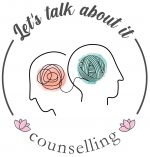FAQs About Counselling & Therapy - Sessions, Fees & More
What should I write in my first message to you?
Just a couple of lines are enough - for example, what brings you to counselling.
Please add your availability, but other than that, you’re welcome to share more if you wish, but it’s not required.
I’ll reply within 48 hours with information about sessions and my availability.
What happens after I contact you?
I’ll respond to your message within 48 hours and offer availability days for an initial appointment without obligation. If I’m fully booked, I may suggest trusted colleagues who could be a good fit.
Why do you offer an initial appointment?
The initial appointment is a chance for us to meet, talk about what brings you to therapy, and see if we feel like a good fit. It lasts around 50 minutes and costs £25.
Time will be given for reflection on the meeting before you decide whether to continue.
I’m nervous – how can I prepare for my initial appointment?
Feeling nervous is completely normal. Most people relax after the first few minutes.
Some find it helpful to jot down a few thoughts or questions beforehand, but you don’t need to prepare - just bring yourself!
There is a structure I follow, but I'm also flexible to focus on what you want to bring.
I'll have some questions prepared, and I'll give you a brief description about how I work and some basic logistical information about therapy.
I'll also ensure there is enough time to answer your questions.
What can I expect during counselling sessions?
In early sessions, I may ask some background questions and we’ll clarify your goals.
As therapy goes on, we usually build on where we left off, but you’re always free to bring in whatever is on your mind. Each session is your space to talk, reflect, and explore.
What is counselling and what does a counsellor do?
Counselling is a safe, confidential space to explore your thoughts, feelings, and experiences with a trained professional.
I use counselling, psychotherapy, and therapy as synonymous terms.
A counsellor doesn’t give advice but helps you understand patterns, gain new perspectives, and make changes that feel right for you.
What is pluralistic and integrative counselling?
Pluralistic counselling is based on the belief that there isn’t just one “right way” to approach therapy. Everyone’s needs are different, so I adapt techniques to suit you - whether that means exploring emotions, working on thought patterns, or building practical strategies.
A key part of this approach is collaboration, shared decision making, and meta-communication (openly talking about the therapy process itself). This means we’ll discuss what you want from counselling, how you’d like to work, and make adjustments together - so the support you receive feels right for you.
Is online counselling as effective as in-person counselling?
Yes. Research shows online counselling can be just as effective as face-to-face sessions.
It can also offer more flexibility, making it easier if you have a busy schedule, social anxiety, or difficulties travelling.
Will everything I say be kept confidential?
Yes. Everything you share is private and handled with care.
The only exceptions are rare situations where there’s a serious risk of harm to yourself or others - I’ll explain these boundaries clearly at the start.
How long will I wait for an appointment?
I reply within 48 hours and aim to offer an initial appointment within a week.
Availability may vary, but I’ll always do my best to arrange something promptly.
How long does counselling and psychotherapy usually take?
It depends on your needs.
I tend to work on an open-ended basis. Some people find a few sessions enough to refocus, while others prefer ongoing work.
I offer 6–10 session blocks for those who want a more structured approach or have limited time or resources.
What are your counselling fees?
I currently charge £65 per 50-minute session.
The initial appointment is offered at the reduced fee of £25 and lasts about 50 minutes.
Get in touch
You can write your message below — I aim to reply within 48 hours.
If you’d like to ask a question about counselling or arrange an Initial Appointment (with no obligation to continue), I’d be happy to hear from you.
That first appointment is a chance to talk about what’s been happening and see whether I’m the right counsellor for you.
If you’re unsure what to include, you can check my FAQs for some guidance.
And if you don’t see a reply, please remember to check your spam folder — I always respond.

© Let's Talk About It Counselling
Powered by WebHealer
